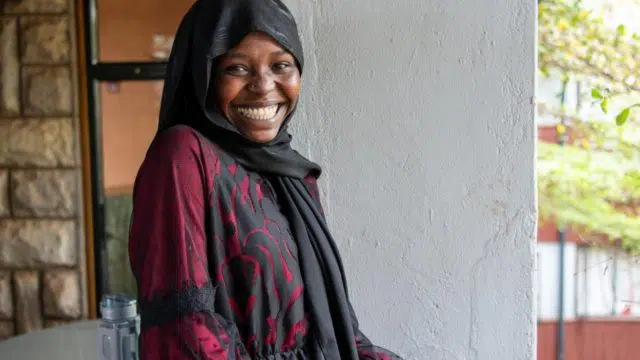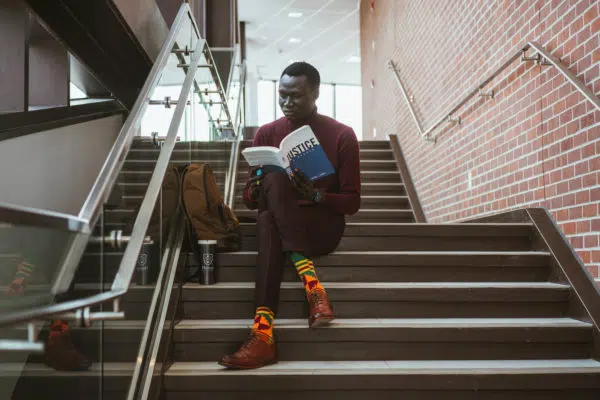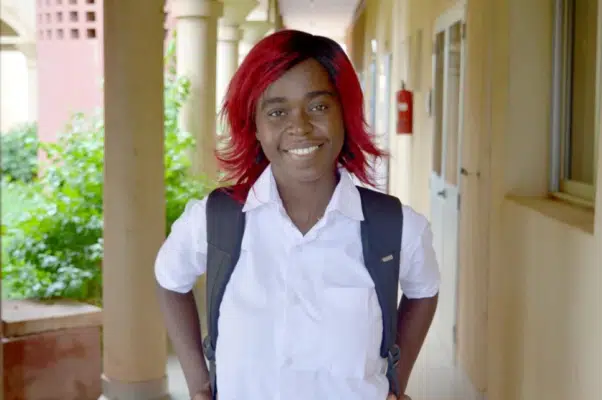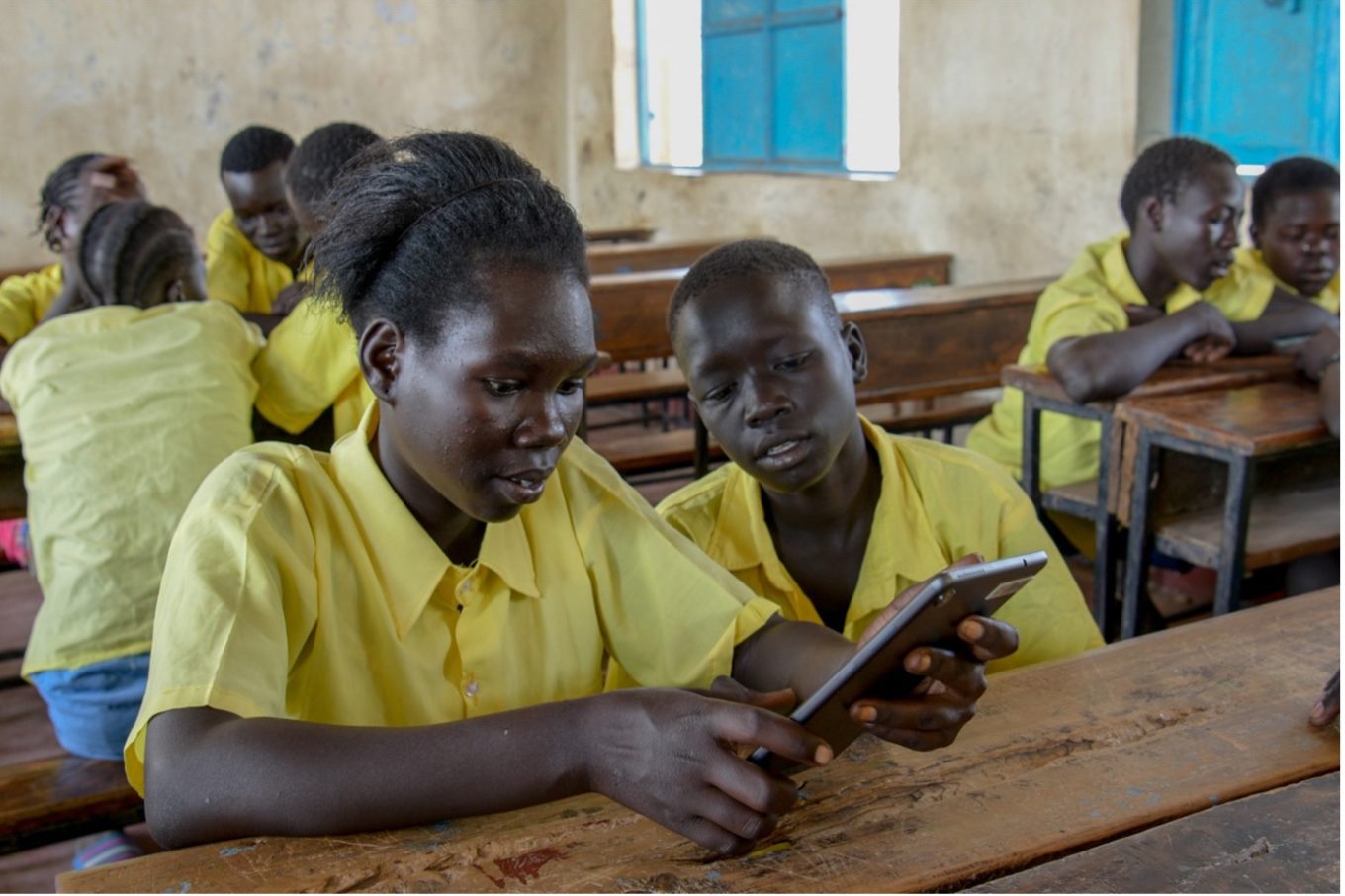
Paska Charles, 15, shares a tablet with a classmate in Kalobeyei settlement. © UNHCR/Pauline Omagwa
A tablet with internet connectivity offers a bridge to quality education and hope for a better future for refugees
By Pauline Omagwa in Kakuma, Kenya
Seated in groups of four, learners silently listen to a prerecorded lesson in class. Some take notes as their teacher moves from one group to the next, monitoring their progress.
Paska Charles, 15, sits in one of the groups. The South Sudanese refugee who lives in Kalobeyei settlement in northwestern Kenya, arrived in the adjacent Kakuma refugee camp when she was 10 years old.
“The first school I attended was in the refugee camp. I was so excited to join school,” says Paska.
There are over 19,000 learners in primary schools in Kakuma refugee camp and Kalobeyei settlement.
“We are more than 70 pupils in my class, so most of the time we have to share the learning material,” says Paska.
“For me, it is okay as long as I am in school. That’s what matters.”
A regular classroom can hold more than 100 learners, meaning that at least seven learners share a single textbook. However, this situation has not deterred the young learner’s passion for education.
“For me, it is okay as long as I am in school. That’s what matters,” adds Paska.
Prior to the COVID-19 pandemic, UNHCR, the UN Refugee Agency, and its partners were conducting limited digital learning in the schools in the camps with only four out of the 55 preprimary, primary and secondary schools having access to digital learning.
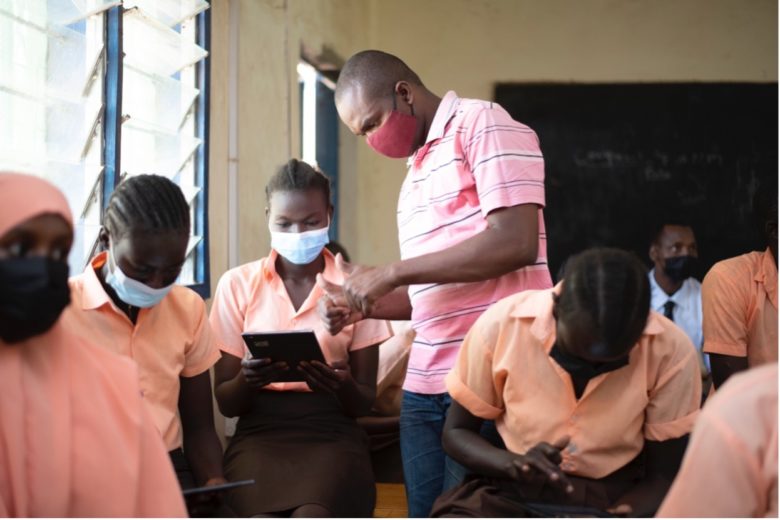
An ICT teacher taking his students through a digital learning session in Kakuma refugee camp. © UNHCR/Pauline Omagwa
“When digital learning first began in schools, learners and instructors responded differently but as time passed, learners’ willingness to attend classes have increased”, says Msembwa Esdras, 51, who worked as an incentive teacher in Kakuma refugee camp for 12 years.
The COVID-19 pandemic and the subsequent closure of all schools had a major impact on refugee learners, who depended on the schools for both education and psychosocial support.
“Keeping up with schoolwork was really hard since the majority of us did not have access to radio or internet,” says Paska.
Ali Omar Duale, who works for UNHCR in Kakuma, adds that while some learners globally were quickly adapting to distance learning, most refugee learners did not have access to or the means to continue with their curriculum. Thus, UNHCR urgently needed to implement additional measures to support learning recovery for the refugee students.
To help with the implementation of this plan, UNHCR expanded access and capacity to deliver digital learning interventions to learners with the help of partners such as the Mastercard Foundation. Teachers were trained on ICT integration to ensure quality distance learning.
The education technology initiative introduced e-learning solutions in refugee hosting areas of Kakuma and Kalobeyei, supplementing provision of equitable and quality education services reaching over 18,000 learners in 17 camp-based schools. The project also enhanced teacher quantities and capacities to integrate ICT components in education programming.
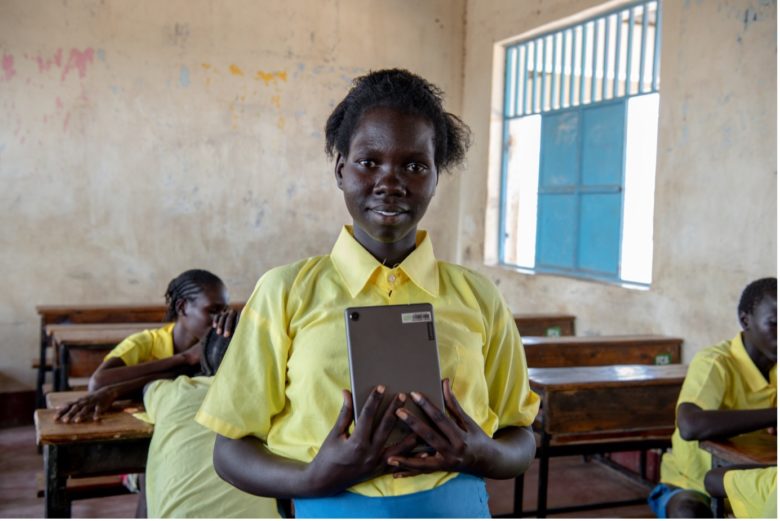
Paska Charles, 15, in her classroom in Kalobeyei settlement. © UNHCR/Pauline Omagwa
Paska’s school was scaled up with digital infrastructure and with new tablets, which were procured with the support of the Mastercard Foundation. The tablets have been instrumental in helping refugee learners with digital learning, staying connected and ensuring access to diversifying learning materials.
“My dream is to become an English teacher. I want to teach refugee and host community learners here in the settlement.”
“My favorite days in school are Monday and Friday when it’s my time to use the tablet,” says Paska. “We can for example use the tablets to search up past tests to revise for the exams.”
“My dream is to become an English teacher. I want to teach refugee and host community learners here in the settlement. I also hope we will have more tablets so that all my future students can use them.”



